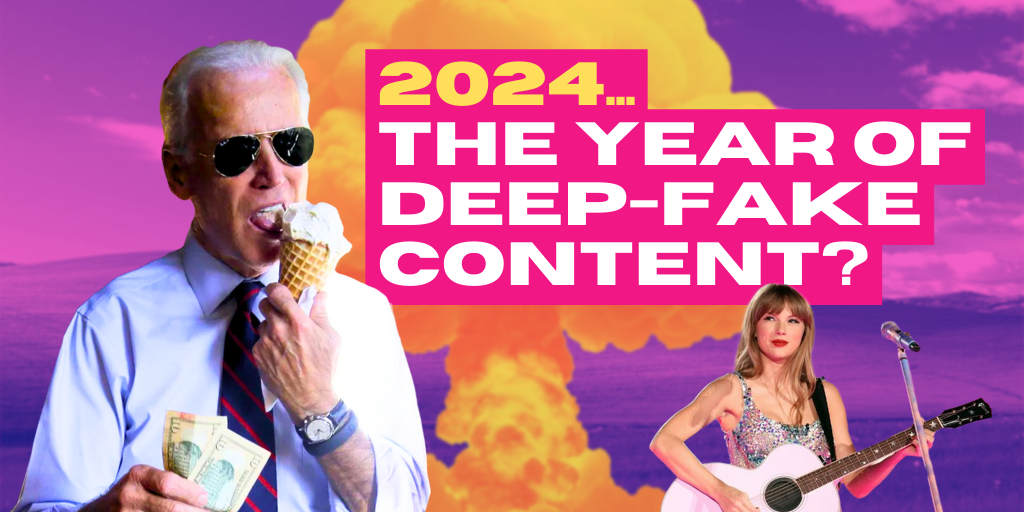If you are interested in Generative AI, you are probably no stranger to deepfake technology. As a matter of fact, if you watched Black Mirror’s S02E01 episode Be Right Back, where a woman communicates with a deepfake version of her deceased boyfriend, you’ve had a glimpse of the potential of this technology: the good, the bad, and the eerie.
In a nutshell, deepfakes leverage artificial intelligence to create hyper-realistic video and audio content. This combo comes with many opportunities and challenges for content creators and companies alike.
So, today’s blog will discuss a few of those that are the most relevant to content production.
On one hand, it allows for innovative storytelling, enabling the creation of realistic content that was previously unimaginable. Imagine watching a video where your great-great-grandmother teaches you about your family tree, and all it took was uploading her picture to one of those genealogy websites. Or if you like comedy, the joy it would bring to watch a new special by George Carlin (oh wait, scratch that one out).
Deepfakes can significantly boost how creative industries personalize content production efforts, producing advertisements and corporate communications that, as the cool kids say, stop the scroll. However, like my non-technical abuela used to remind me every time I did something dumb, “It’s all fun and games till someone loses an eye,” and the cons of deepfakes are considerable.
At the top of my head, there are ethical concerns around consent and authenticity and how this technology can boost misinformation and damage reputations due to the ease of scaling the production of convincing yet false content. Examples abound and will only become more frequent in 2024, such as AI-generated adult material featuring celebrities or fake messages by politicians, which is not ideal in an election year.
But that’s not all. You could also question how ethical it is to use the likeness of a marginalized community to check the #diversity box for a marketing campaign when the ones profiting from it are the same ol’-privileged boys that usually do, or the potential copyright and privacy lawsuits. The list goes on.
As companies look to continue boosting profits, deepfake technology offers -in theory- a tempting opportunity for groundbreaking content creation at a low cost. However, as producers, marketers, or writers, we need to navigate the creative aspects of its use while continuing to educate ourselves and our teams on the ethical and legal implications of this technological development.
